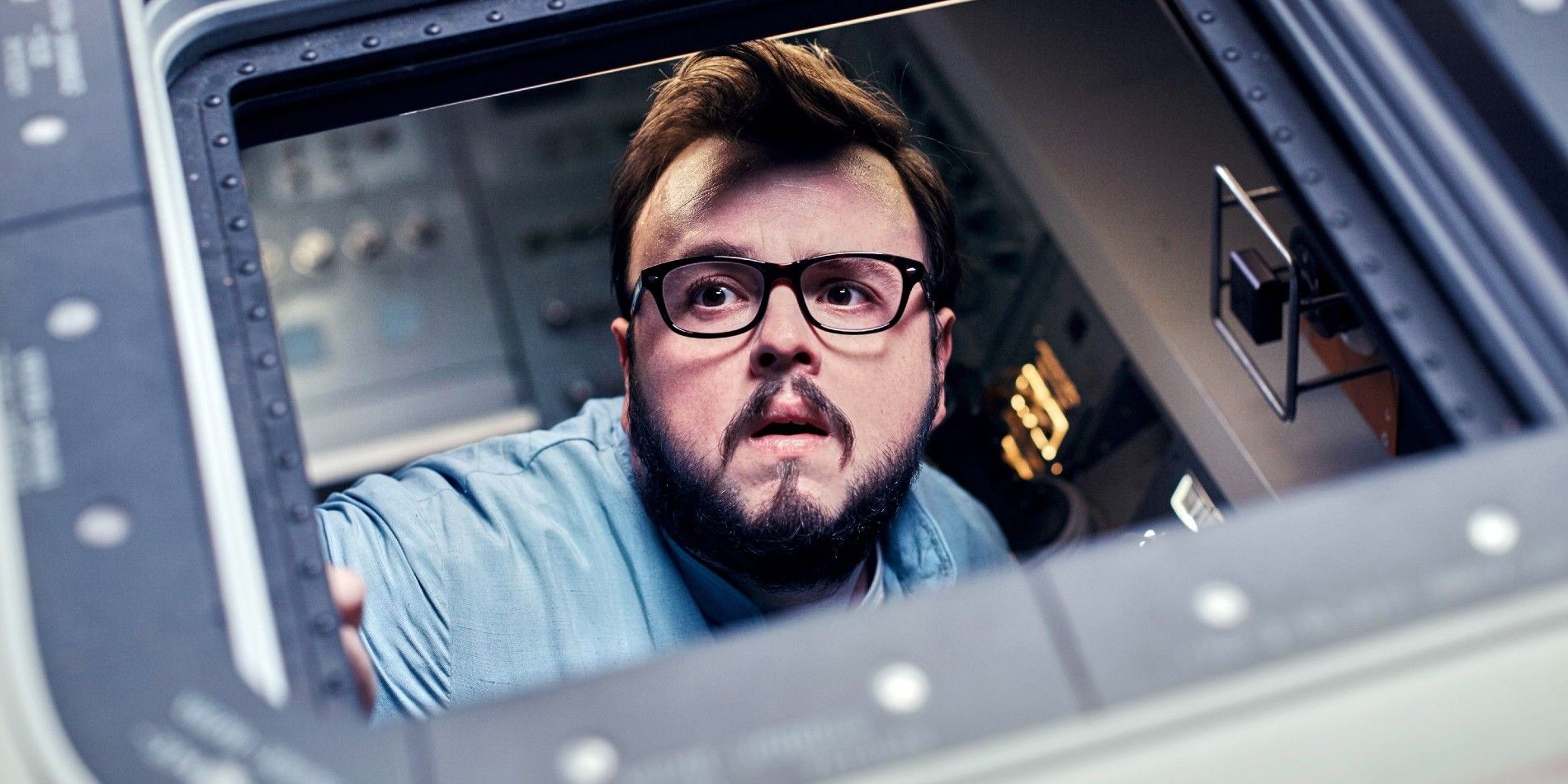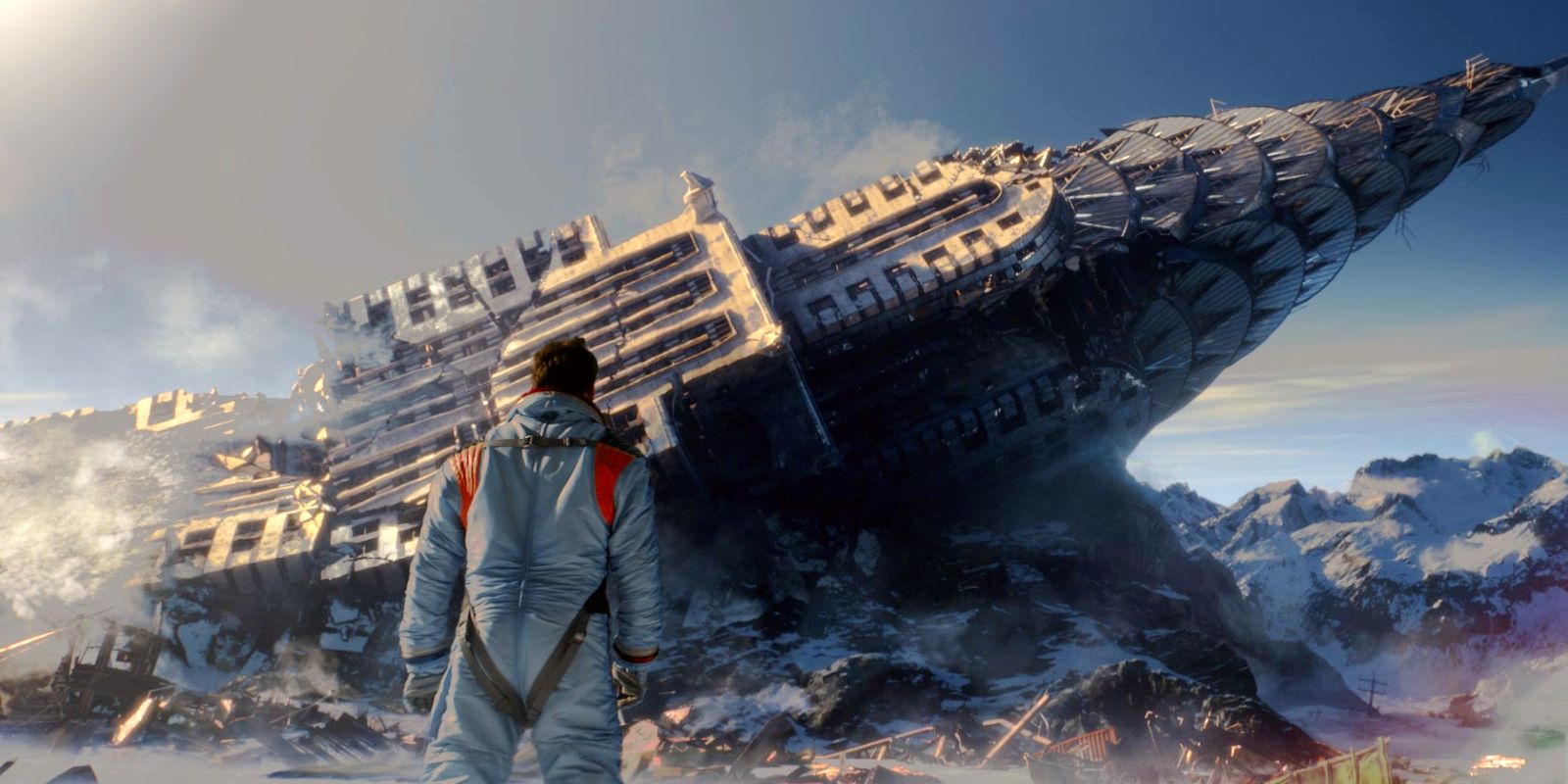Warning: This article contains spoilers for Moonfall.
Moonfall star John Bradley admits that he too was blindsided by the surprise ending of the science-fiction movie. Moonfall, which hit theaters Friday, is the latest disaster film from blockbuster maven Roland Emmerich. The star-studded cast includes Halle Berry, Patrick Wilson, Michael Peña, Donald Sutherland, Eme Ikwuakor, Charlie Plummer, and Kelly Yu. Although the film is expected to end the weekend at #2 at the box office behind Jackass Forever, box office projections show that it's likely to earn around $10 million.
At first blush, Moonfall seems like typical disaster movie fare: Wilson and Berry are astronauts who must stop the moon from falling out of orbit and slamming into the Earth. However, things get interesting when the team is joined by conspiracy theorist C. K. Houseman, the character played by Bradley. His theory that there is more to the moon than meets the eye proves to be correct when the characters discover that the moon is not naturally occurring but a megastructure containing advanced technology. At the end of the Moonfall, he sacrifices his life, uploading his consciousness into the mainframe of the moon.
John Bradley sat down with THR to discuss that wild twist that concludes Moonfall. He admits that he was "blindsided" when he learned of the fate of his character. From reading the script, which positions Wilson as the classic disaster movie hero, he assumed that Wilson's character would be the one to ultimately sacrifice himself at the end of his redemption arc. However, as Bradley thought about his ending, "it made more and more sense." He realizes that between the character's lack of ties to Earth and his wish for Wilson to return to be a father to his son, all "the seeds were all planted." Read the full quote below:
It was a complete left turn for me. I was totally blindsided by it in a way that I hope the audience will be as well. Because all the way through, [Patrick Wilson’s character, Brian Harper] was set up to be the hero. Patrick looks like a hero. He acts like a hero. It’d be a satisfying narrative arc for his character – who is plagued by self-doubt and going through a rough patch – to have that redemptive heroic sacrifice at the end.
That the moment goes to K.C. instead, it almost comes out of nowhere. But when I thought about it leading up to doing the final goodbye scene with Patrick, it made more and more sense. K.C. was completely alone. He had no family, no friends. His dad died, his mom had dementia and didn’t recognize him, and was fixated with space. There’s nothing left for him to come back to. He finally got to space and his life was never going to get any better than that. Also, he knows what it’s like to grow up missing a parent, and he didn’t want Brian’s son to go through the same pain he went through. So the seeds were all planted.
In a lot of ways, Moonfall sees Emmerich attempting to subvert the expectations of the typical disaster film. This is easy for him, considering he had a big hand in establishing the formula in the first place. In addition to layering twist after twist on the premise, practically changing the film's entire subgenre in the process, that ending challenges the father-child dynamics that he has already used in previous disaster films like The Day After Tomorrow and 2012.
Unfortunately, it looks like Moonfall is not making the landing it was expected to. In addition to its lackluster box office performance (if Spider-Man performs just $1 million better than projected, the 7-week-old film has a chance of knocking Moonfall to #3 in its opening weekend), it has been generally poorly received by critics. The film has earned a 41% score on Rotten Tomatoes, with an only slightly rosier audience score of 67%, so unfortunately the film's subversion of its own format may not be appreciated until later on down the road.
Source: THR


